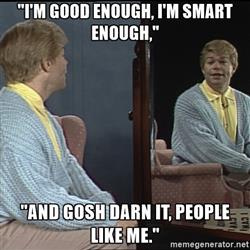I must say I was surprised by the replies to my post that expressed confusion over the definition of “Darwinism”. But this is no doubt due to my limited knowledge (ignorance) of the subject - I have no formal training in the biological sciences and this bumbling amateur has a lot to learn. Unfortunately, I will very quickly find myself seriously out of my depth on Biologos, which is the most professional “evolution” forum I’ve yet encountered. Nevertheless, I want to learn, so the plan is to persevere.
The Dictionary.com definition of “Darwinism” supplied by George in post #30 seems manifestly inadequate to me. According to this definition, a creationist who believes in a literal interpretation of Genesis (ie, all life was created in six days (each of 24 hours duration) about 5778 years ago) would qualify as someone who someone who accepts Darwinism!
The defintion offered by my iPad, on the other hand, seems to me to be more satisfactory. It’s similar to the Dictionary.com definition, but adds, “… leading to the evolution of new species differing widely from one another and from their common ancestors …”
By when I think of Darwinism, I think of the theory of evolution and the Tree of Life proposed by Charles Darwin in his famous book, plus subsequent theories of universal common descent - you know, humans evolving from a hominid, whales evolving from a deer, all life evolving from a single-cell organism, etc. This of course includes the enabling mechanism of variation/mutation coupled with natural selection.
Anyhow, back to my original point, which I will re-submit from a different angle and which also avoids the nebulous term, Darwinism:-
I am a (Catholic) creationist who believes that all life was created in six literal days, about 5778 years ago; and that there is an evolution-restricting “species” boundary (which might be more accurately be described as a “kinds” boundary) … and I am of the opinion that I would not have to compromise my creationist beliefs in any way to become a competent biologist - as in, applied biology (as opposed to “theoretical” biology).
For instance, the “common descent” alluded to by Steve in post #29 and the understanding of DNA ancestry, flu vaccinations and endangered species mentioned by Chris in post #24 are, in all likelihood, examples of microevolution that my creationist paradigm could easily accommodate. In other words, in order to become a competent biologist, I don’t think I would have to accept that man evolved from a hominid, or that whales evolved from a deer, or that all life on earth evolved from a single-cell organism over millions of years. Nor would I have to accept the evidence offered by the fossil record, genetics, morphology, embryology, etc that supports such macroevolution.
I am interested in what the fine minds and erudite souls that inhabit Biologos think about this idea. Thank you.
